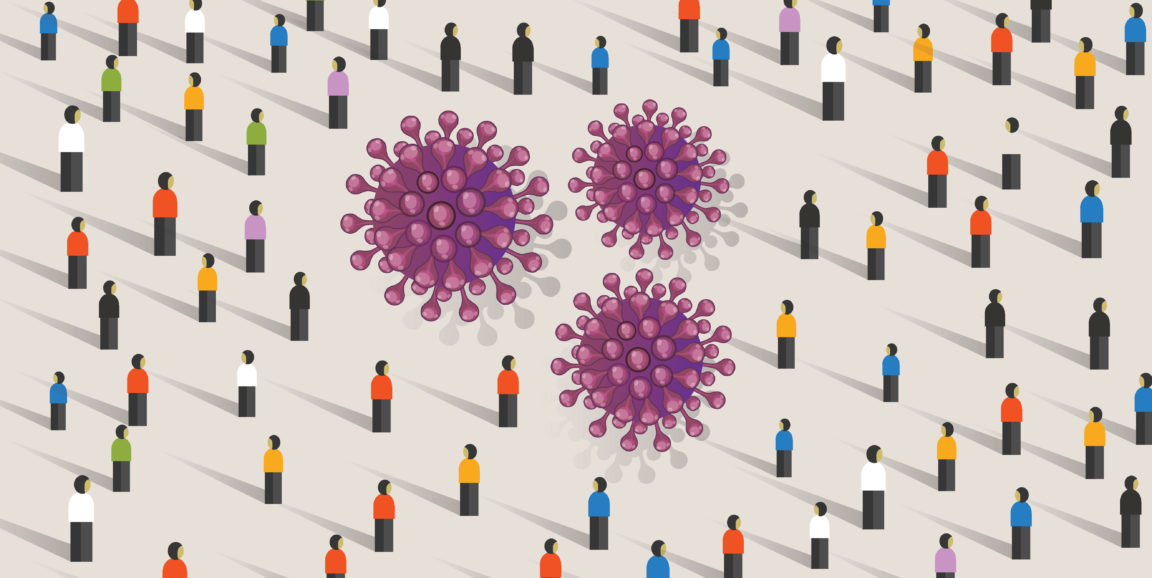Jeffrey Glenn, MD, PhD, professor of medicine and of microbiology and immunology, is on a mission to de-fang COVID-19 and prepare the world for future viral threats.
To see this through, Glenn has assembled a team of more than 100 Stanford faculty, external consultants, postdoctoral researchers, students and other staff to develop drugs to combat viruses that pose a high pandemic risk. Their first priority: SARS-CoV-2.
The effort, dubbed SyneRx, is made possible by a $69 million grant Glenn received from the National Institutes of Health. Those funds are a game changer, according to Glenn. They will support significant progress developing drugs that can target current and future pandemic threats.
We spoke with Glenn about his goals for drug development, the pivotal role antivirals play in pandemic preparedness, and the need for global collaboration.
What role do you see antivirals playing in our current pandemic and future ones?
We need both vaccines and antivirals. Vaccines, when available, play an important role. For instance, with COVID-19, thanks to unprecedented support, scientists developed and distributed vaccines within a year's time. But imagine if we had a pandemic caused by a virus that was lethal to most people. We couldn't afford to wait even a year. We need to have something to immediately shut that pandemic down in its tracks.
So we need to assess -- what are the biggest gaps in our armory? There are many, but we can focus on the viruses that are most likely to cause a highly transmissible and deadly pandemic. For these, we can try to develop antivirals and accelerate them to an advanced stage of development so they can be stockpiled and ready for distribution.
How do you approach collaborating with researchers from other nations, including low- and middle-income countries, to ensure new drugs are meeting the needs of people around the world?
This is an all-hands-on-deck effort. Pandemics are global -- so we have to be too. That's why we have assembled a team with researchers from not only the United States but also from across the world. Everyone lends a specific and honed expertise. That can lead to amazing things.
When the COVID-19 pandemic hit, it made sense to branch out globally. I initiated and lead ViRx@Stanford, an initiative geared toward building out an antiviral toolkit, proactively rather than reactively, to respond to future viral threats. Through this initiative, we've established global hubs. In Brazil, for instance, we've been involved in testing new drugs for COVID-19, including through the TOGETHER trial, which is among the largest trials investigating repurposed therapies for COVID-19.
I'm also excited to partner with researchers at the Stanford Center for Innovation in Global Health, which has a longstanding interest in health equity. While my main focus is developing the actual drugs, there are many other interesting, important aspects to consider, including equitable distribution.
"Broad-spectrum compounds," which are designed to work against many viruses, seem to be a particularly powerful tool for pandemic prevention.
Yes -- for many reasons, I'm a big fan of "host-targeting antivirals," which target something in us that viruses depend on, rather than the virus itself. First, they have a higher barrier to antiviral resistance, since the drug is targeting something in us that's not under the genetic control of the virus.
The second benefit is broad-spectrum potential. Often, if one virus has evolved to depend on one host function, other viruses have too. So, the same drug could counter multiple different viruses -- ones that we know about and ones that have yet to surface.
Finally, there's often an opportunity for a non-viral clinical use. For instance, Hepatitis delta virus, the worst form of hepatitis, plagues countries like Mongolia. Mongolia also has high rates of liver cancer, which is likely related. I work with collaborators in Mongolia, and we have been combating this devastating disease for many years. We now have a drug in phase three trials that will, hopefully, soon be approved.
If successful, this drug could retire this form of hepatitis to the history books and also bring down the cancer that comes with it. Even better, this drug was also recently approved for a completely unrelated, non-viral disease called progeria, which causes premature aging in children. This drug prolongs their life, which is amazing.
Spending one's career targeting deadly disease can't be for the faint of heart. What gives you hope?
I'm a glass half-full, three-quarters-full kind of guy. I have great hope. And this hope is buttressed by data and facts. We couldn't have been doing what we're doing now, with this magnitude of support and number of people, before the pandemic. For many of us, this is what we trained for our whole life. It's really an honor and privilege to engage in this type of work.
This Q&A has been condensed from its original version, which was published by the Stanford Center for Innovation and Global Health.
Photo by bakhtiarzein






